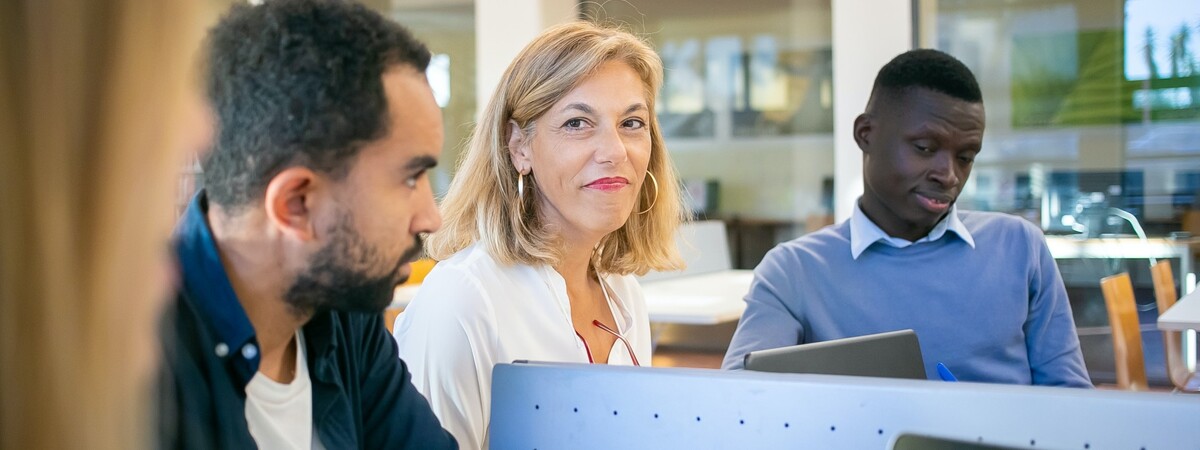When you worked as a teacher, there may have been some days, weeks, or even terms where you were counting down the days until retirement. You might have thought about the things that you would do—travel, garden, arts and crafts, volunteer, spend time with grandchildren, etc. In reality, often the novelty can soon wear off.
It is likely that, as a teacher, you spent more waking hours with your work colleagues than with your family and friends. Perhaps you miss teaching, students, and daily contact with other teaching staff.
Many retired teachers struggle with how to spend their time after they retire and miss the social connection that a school provides. And then, of course, with the increased costs of living, you might be thinking that there could be another way to supplement your retirement.
Tutoring
Wouldn’t it be great to come back to the classroom without the pressures of marking, classroom discipline, OFSTED visits, parent’s evenings, lesson plans, keeping up with the curriculum, admin, running extracurricular activities, organising school trips, and monitoring the playground?
By becoming a tutor, you can do just that. You can use and impart your knowledge, teaching skills and educational experience to make a real difference in a student's life.
Benefits of working as a tutor in your retirement
Flexibility, as you work when you want.
Supplement your retirement and pension.
Working on a one-to-one or small group basis, you’ll build strong relationships with your student(s).
Pay attention to the individual’s learning needs, rather than a whole class.
You’ll see the investment of your time in nurturing pupils and helping them grow more than in a standard teaching environment.
Learn from colleagues and make new friends.
Work with different cultures and communities.
You learn from the students too!
As a retired teacher, you will already have teaching skills and know how to balance different learning styles. Tutors don’t have to worry about adjusting their teaching approach the same way teachers do in the classroom.
From teaching to tutoring
One of the most natural transitions for teachers is from teaching to tutoring. Both aim to help students reach their full potential while providing encouragement and support.
Tutoring and teaching are often used interchangeably, but there are key differences between the two that make tutoring a rewarding experience that cuts out the stress of being a teacher.
Tutoring gives pupils individual attention they won’t get in a classroom. For disadvantaged pupils who would not otherwise be able to afford private tutoring, this effective intervention can play a big role in raising attainment.
With tutoring, teachers get the chance to continue to pursue their passion for educating others without the pressures that come with teaching today. And, as a tutor, the most paperwork you’ll have to deal with is logging your hours.
Why schools need retired teachers
The impact of the COVID-19 pandemic and lockdowns are still felt in schools. In 2022, the attainment gaps at primary and secondary levels were at their widest for a decade, according to the Department for Education (DfE). And that is where tutoring plays a part.
Protocol Education is an approved partner for the National Tutoring Programme (NTP). We want to help students who may have been disadvantaged due to school closures receive quality tutoring.
Retired teachers have a wealth of knowledge and experience. And while specialist training is still given to retired teachers who want to tutor, schools, parents, teachers, and pupils are safe in the knowledge that an experienced teacher is delivering their tutoring.
According to The Education Endowment Foundation, evidence shows that an intensive programme of one-to-one or small-group tuition could add as much as four to five months’ progress to a pupil’s education.
The benefits of tutoring
The DfE commissioned Ofsted to carry out an independent review of tutoring over two years from September 2021. Phase one findings covering 63 school visits from September 2021 to July 2022, revealed that school leaders, staff, and pupils were positive about tutoring, with many pupils commenting about how much they looked forward to tutoring.
About the National Tutoring Programme (NTP)
The National Tutoring Programme is now in its third year. A new funding model means that schools now receive their catch-up funding automatically from the Department for Education (DfE.) Protocol Education has been an NTP Tuition Partner since it was first introduced.
How to become a NTP tutor
To become an NTP tutor, you’ll undertake free specialist training, the Tutor Toolkit, developed by our partner company Best Practice Network (BPN). This CPD Accredited course comprises six modules covering different topics and tools for delivering high-impact tuition.
Once training is complete, you choose the days and times you are available, and we find the tuition sessions that fit. Our hourly rates for tutors are competitive and paid weekly. And with some online and out-of-school tuition work, you can tailor your retirement life to your needs, so you can enjoy the best of both worlds.




